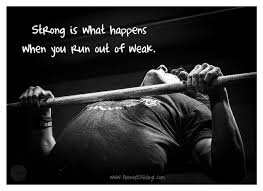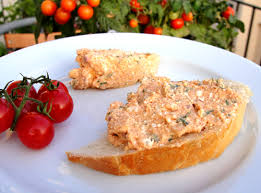 A few years ago I lost my sense of smell.
A few years ago I lost my sense of smell.
Then I changed my diet and the sense of smell came back.
Surprisingly I often smell things that didn’t seem to be there… Bringing up memories of the times I smelled the same… good smell, bad smell, neutral smell.
It’s hot here, unseasonably hot, and to accommodate it I am taking cold showers and I am eating differently.
 I made a dip-like thing I used to love in Hungary and I hadn’t eaten in 35 years… korozott: a simple dish mixing spices, butter, and goat cheese, and if you have it, onion or onion powder… the goat cheese is salty enough, so use sweet unsalted butter, and saltless onion powder, or it will be inedible.
I made a dip-like thing I used to love in Hungary and I hadn’t eaten in 35 years… korozott: a simple dish mixing spices, butter, and goat cheese, and if you have it, onion or onion powder… the goat cheese is salty enough, so use sweet unsalted butter, and saltless onion powder, or it will be inedible.
It tasted exactly like what I remembered.
Then I had the thought: I’ll make an omelette, and put it on it for flavor.
And then the smell hit me…
and I was back in my empty apartment, 1971. I just moved…I was in the last year of my studies to become an architect.
My father paid the downpayment for this tiny studio, but forgot that I still had to pay the mortgage, and electricity, and the phone bill… so I was starving. Literally.
I hadn’t eaten for three days when I found an old crust of bread in a cupboard, and a dry smidgen of the dip with goat cheese.
I put the “dip” on the bread crust, lit the gas oven, and hoped that the heat will make both edible.
Then the door bell rang, and two friend of mine pushed themselves and ran to the oven, grabbed the bread crust and gleefully ate it.
I sat on the floor and started to sob.
Later that night they brought me a whole container of casserole… and I survived, yet again.
If you look at your life. See how many real hardships you’ve gone through. Hardship, tragedy, loss.
Whatever doesn’t kill you makes you stronger 2
Victor Frankl, a neurologist, psychiatrist, holocaust survivor and author of Man’s Search for Meaning (pdf in my paid subsribers site, https://free-stuff.by-sophie.com ), wrote:
The way in which a man accepts his fate and all the suffering it entails, the way in which he takes up his cross, gives him ample opportunity – even under the most difficult circumstances to add a deeper meaning to his life.
While some pain and suffering in life are unavoidable and part of the human experience, much is self induced by our thoughts and can be radically reduced by mindfulness practices and mental health tools. Learning to alter my thoughts has drastically improved my life. To be able to work with the same types of challenges that used to cause me such panic, pain, and suffering has provided me a consistent level of calm, joy, optimism and trust in myself and the universe.
It’s not that I don’t have any troubles anymore – far from it, but they don’t traumatize me, hijack my life and steal my peace of mind like they used to. After a few minutes, sometimes hours — OK, maybe even days of the “I can’t believe this!” feeling, I take a deep breath, stop struggling, and, eventually, accept what’s before me.
Accepting isn’t the same as condoning or approving. To accept means to stop resisting or struggling against what is because to do so causes pain and suffering. Acceptance means to surrender to the moment as it is. Not give up.
In a video by the author and philosopher, Ekhart Tolle, he indicates that we aren’t able to surrender until we’re completely fed up with suffering. He says that a person has to have had enough and, at some level, recognize that the suffering is self created by their thoughts and that there is another way to live. This was certainly true in my case.
The concept of surrendering is taught in every religion. Surrendering is the central message of Buddhism and is even found in the teachings of Jesus.
Byron Katie writes in Loving What Is: Four Questions That Can Change Your Life:
The only time we suffer is when we believe a thought that argues with what is. When the mind is perfectly clear, what is is what we want. If you want reality to be different than it is, you might as well try to teach a cat to bark. You can try and try, and in the end the cat will look up at you and say, “Meow.” Wanting reality to be different than it is is hopeless.
So, while what doesn’t kill you, can make you stronger, you can ease the suffering of going through it by learning to accept what is. Surrendering to any situation isn’t going to make it magically go away, but it will make it less painful and allow the deeper meaning to which Frankl referred to surface. Promise.
[/efn_note]
No one is born strong. Strong people are made. Tenacity is made. Persistence is made…
If you are not strong, if you are not courageous, you can chalk it up to having had a life where you could survive without having to survive anything.
So how do you toughen up?
Because being a weakling has resulted in the life you have… and you would not be reading this, if you loved your life.
I recommend toughening up yourself through causing physical discomfort.
Taking cold showers is something to survive, even in warm weather.
Start slow and build up to a full shower without turning on the hot water. It may take you a year, but in the process you’ll notice that you’ll fundamentally change.
A life of ease is a life of no joy.
Joy is an experience that you’ll notice only in the contrast.
A life of ease doesn’t allow you to build character. Character is built in fire… and there is no fire in a life of ease.
You need to create it.
Start with the cold shower.
Write to me if you are already good at that, regularly, like clockwork.
I’ll advise you on the next step.

What Doesn’t Kill You Makes You Stronger
source
That quote is attributed to the German philosopher, Friedrich Nietzsche. Actually, he said it much more eloquently: “That which does not kill us, makes us stronger.” It turns out that he was right.Studies have shown that some trauma survivors report positive changes and enhanced personal development, called post traumatic growth (PTG). PTG refers to any beneficial change resulting from a major life crisis or traumatic event, but people most commonly experience a positive shift by having a renewed appreciation for life; adopting a new worldview with new possibilities for themselves; feeling more personal strength; feeling more satisfied spiritually, and/or their relationships improve.
In the years I spent recovering from a brain injury, I experienced every single one of these.
There’s no standard to determine what constitutes trauma or healthy growth but it has been determined why some people experience PTG and some don’t. As expected, it was found that people with a moderate aptitude for psychological adjustment were the most likely to show signs of PTG while those with difficulty adapting exhibited less. However, surprisingly, those with the highest aptitude for psychological adjustment demonstrated the least signs of positive change perhaps because they already understood that difficulty is integral to life, were already adaptable, and not that transformed by the experience.
 In an article interviewing comedian Jerry Seinfeld, he recalls being heckled and ignored as a struggling comedian in his early days. On one particularly soul-crushing occasion, people at a New York disco went right on dancing through his act as though he weren’t even on stage. Such challenges made him a stronger person and better performer he said. “I don’t mind suffering. You suffer in all things — work, relationships, whatever else you do. Unless you’re eating ice cream, you’re suffering,” he commented. 1pdf if the yahoo news page doesn’t work you-dont-know-what-you-need-to-do
In an article interviewing comedian Jerry Seinfeld, he recalls being heckled and ignored as a struggling comedian in his early days. On one particularly soul-crushing occasion, people at a New York disco went right on dancing through his act as though he weren’t even on stage. Such challenges made him a stronger person and better performer he said. “I don’t mind suffering. You suffer in all things — work, relationships, whatever else you do. Unless you’re eating ice cream, you’re suffering,” he commented. 1pdf if the yahoo news page doesn’t work you-dont-know-what-you-need-to-do
